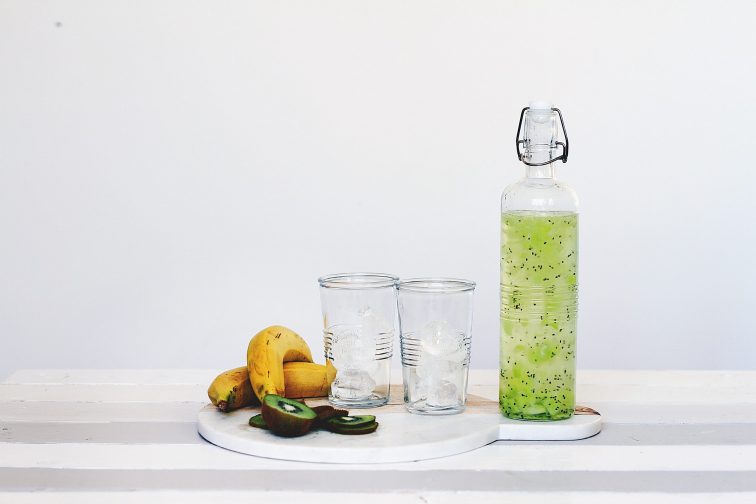You’re 1 month into your journey towards a healthier, happier gut! This week we’re looking at liquids, specifically the three most common types of liquid that play a major role in many of our day to day lives and habits; water, caffeine and alcohol.
All Things Liquid

Today’s a big milestone, you’re 1 month into your journey towards a healthier, happier gut!
At this point, we’d really encourage you to get in touch. Let us know how you’re getting on so far; the positive changes, side effects, changes in your mood, we want to hear it all! We are here to help, so make the most of it by dropping us a message on our website via our live chat.
You’ve already made a number of changes to when and what you’re eating, and why it’s so important to monitor your food intake. This week we’re looking at liquids, specifically, the three most common types of liquid that play a major role in many of our day to day lives and habits; water, caffeine and alcohol.
Water
70% of your body is made up of water, therefore it’s unsurprising to hear that it plays a fundamental role in our health and wellbeing. A big part of this stems from its role within our gut, as water ensures that everything we eat passes through the body with relative ease.
It helps to keep the bacteria in our gut well balanced, as well as encouraging the growth of probiotics. Drinking regularly throughout the day is therefore a very simple way to nurture a healthy gut. The eatwell guide recommends drinking 6-8 glasses of fluids a day. We’d recommend investing in a reusable water bottle that you can carry around. This will not only mean you always have access to drinking water, but it will also act as a prompt and a reminder.
While keeping hydrated is extremely important, there is such a thing as overhydration, which can dilute important substances in your blood and remove important electrolytes. Most adults need around 2L/day of fluids; which does include tea, coffee and other drinks such as milk and juice.
A simple way to monitor this is by keeping an eye on your urine colour – if it’s occasionally clear then it shouldn’t be an issue, but if it is always clear (and not a pale yellow) then it could be an indication that you are drinking too much water.
Caffeine
Caffeine is a bit of a grey area when it comes to gut health. Caffeine’s a stimulant, meaning it temporarily makes us feel more alert and less drowsy. Moderate levels of caffeine have actually been linked to good gut health, associated with increased richness of the gut microbiota as well as a higher relative abundance of anti-inflammatory bacteria. It also helps to improve bowel movement by increasing the motility of smooth muscle in the gastrointestinal tract.
Like most things though, the benefits are only apparent in moderation, and drinking too much coffee or drinking it late at night, can have other implications (such as a poor night’s sleep) which will negatively impact your gut health. If you drink coffee to give yourself a productivity boost, but struggle with the side effects – then take a look at the benefits of Aguulp for Brain, along with ensuring your diet and fluid intake is adequate.
Alcohol
The one many of you will be apprehensive to hear about… Heavy alcohol consumption can stimulate the overgrowth of harmful bacteria while reducing the population of helpful bacteria. This can lead to inflammation as well as a number of other health-related issues.
What you’ll be happy to hear however is that a small amount of red wine could be good for your gut, increasing the diversity of helpful gut bacteria. It’s suggested that the benefit comes from the concentration of polyphenol – something that (according to King’s College London) white wine, beer and cider have far less of.
The recurring theme here, like most things in life, is balance. Too much of almost anything can have negative impacts if consumed in excess.
Here’s a suggested routine to ensure you are helping to support your gut with the liquids you choose…
Breakfast
Incorporating yoghurt or kefir into your breakfast is a great place to start! Kefir is a fermented milk drink that has very similar properties to drinkable yoghurt. However, it contains a much more diverse array of microbes than yoghurt and contains dozens of different strains of yeast and bacteria.
Lunch
Pick one of these amazing gut-healthy smoothies to go with your regular lunch
Evening
Consider having a ginger tea after dinner. Ginger can help the emptying of the stomach and may be beneficial for people with stomach discomfort and indigestion. Ginger also acts as a prebiotic, stimulating the production of gut-healthy bacteria. Tip, use freshly grated ginger to get the greatest health benefits.